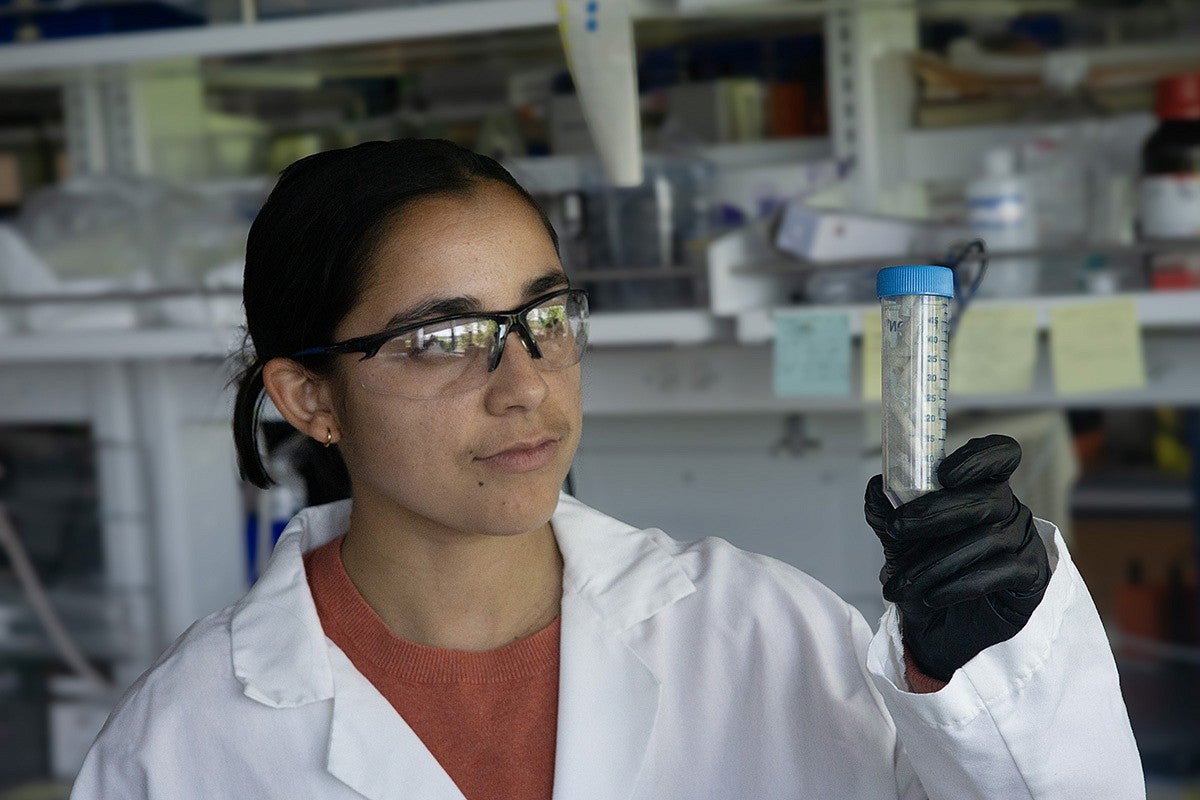
Running ahead of the pack
With a minute and thirty seconds to go in the second heat of World Athletics Under 20 Championships 3,000-meter steeplechase, Harper McClain looked up and found herself in last place. The air in Lima, Peru that day was stale as the dry season had set in. It wasn’t too hot, but McClain had to make a decision.
She wanted to make the finals, but at this point she was a long shot. That’s when all of her training as a runner at the University of Oregon – months of grueling distance running, sprints on the track at Hayward Field, weightlifting and more – kicked in.
“I was a sophomore, and I had originally come to UO primarily because of the opportunity to continue running after high school,” McClain recalls. “I remember meeting the coaches and feeling like this was home...In that race, I didn’t want to let anyone down.”
The Honors College athlete let loose a furious kick, passing a number of runners along the way to finish in the top 12 and qualify for the finals. Her friends, coaches and university teachers all say that when it comes to having to tough it out, no one does it better than McClain.
“She has an amazing drive,” says Nick Willett, an associate professor in the Department of Bioengineering at the Phil and Penny Knight Campus for Accelerating Scientific Impact. He runs the lab where McClain has spent four years conducting research.
“Almost more impressive is her work ethic. I have never had anyone balance all that she does – the academics, the research, the athletics. She is nothing short of remarkable.”
Her mentor in the lab, graduate student Frank Pittman, says it should surprise no one that the Honors College student has been successful. One thing he has noticed about the human physiology major who also has a minor in chemistry is that he has never heard her utter a complaint about anything.
“It’s almost like she has never considered taking anything off her plate,” says Pittman, who is part of the Knight Campus’s bioengineering PhD program. “She has an innate ability to be flexible and adapt, and she doesn’t let anything interfere with her focus. It’s not just in academics or athletics. It’s in both.”
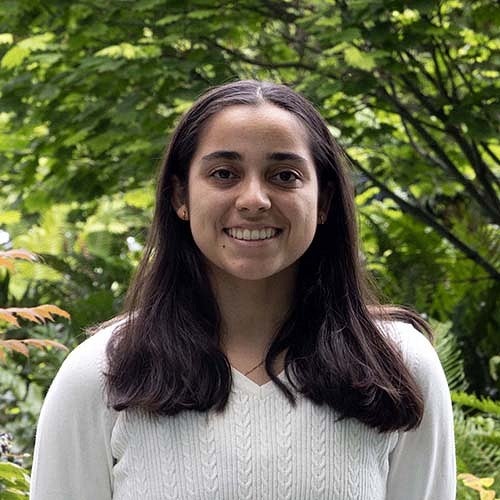
Harper McClain
Major/Minor: Human Physiology/Chemistry
Hometown: St. Helena, California
Coffee or tea: Occasionally matcha
Song on repeat: “All The Stars” by Kendrick Lamar and SZA
Favorite experience from the CHC: Exploring the public health water crisis in Flint, Michigan, and developing solutions.
Thesis title: “An Immunomodulatory, Tissue Deposition Mechanism and Rehabilitative Therapy for Restoring Muscle Functionality After Volumetric Muscle Loss”
Advice for incoming first-years: Don’t hesitate to dream big and ask questions along the way.
This summer, I can’t wait for: Graduation, a summer trip to Germany, training for running, and continuing to conduct research in the lab.
I’m grateful for: The support of my family.
Next steps: Pursue a master’s in bioengineering and continue to compete collegiately in track, all in preparation for earning a PhD in the field.
McClain was raised in St. Helena, Calif., a small town tucked away in the Napa Valley. She was the middle of three children. Her parents encouraged her classroom pursuits in the sciences and beyond. She also liked classes where she could practice her oratory skills. And running in high school was a big part of her life.
Early on she aspired to go into the field of medicine because she wanted to help people. “I told everyone I thought I wanted to be a doctor,” she recalls. “You see patients. You help them when there is something wrong and they find a way to get better with your guidance.”
But as she entered the Honors College and found her way to Willett’s lab, she saw there was another aspect of healthcare that also drew her: using research and science as ways to improve public health.
As a sophomore, she earned an internship with PeaceHealth Medical Center in Eugene. She did some work as a medical scribe, taking notes for practitioners. And she later worked for the Lane County Health Department and volunteered with Occupy Medical, a social service agency that offers healthcare to homeless people.
As someone who has always tried to solve problems, those experiences got McClain thinking. She developed a sense of urgency around getting at the root causes of medical problems. She examined structural hurdles that some faced when seeking medical attention. How do you truly make a difference in someone’s life, she wondered.
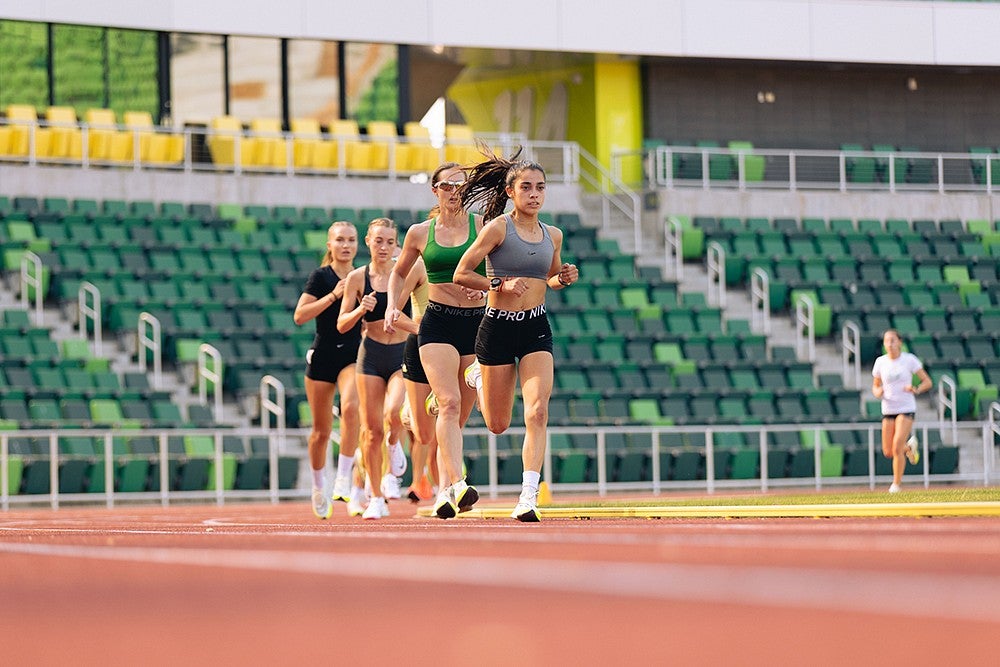

As a junior, she had the opportunity to examine treatment plans for patients of PeaceHealth’s cardiac rehabilitation center at its RiverBend campus. She assisted patients who were coming in for appointments, setting them up for having electrocardiograms and other procedures.
She recalls a woman who came in after having repeated heart problems, some of it caused by stress. She had taken pain medication, but it had left the woman immobilized. McClain remembers wondering how the woman would ever find a good balance with her medicine if she didn’t have access to a regular doctor.
“There are more ways to help others than just by going into medicine,” McClain says. “I had started out as a biology major, thinking I would go to med school. But I also want to do something about how the systems of public health aren’t always accessible to certain people. Bioengineering, developing treatments, looking at the root causes of accessibility. Those are important, too.”
Around the same time, McClain’s running career took a hit. She received the news that she had developed a sacral stress fracture, a hairline crack in the triangular bone at the base of her spine. The cause? Too much running.
It was a blow to the woman who was used to early morning training sessions with the cross country and track teams. The competitor who raced against the top young distance runners in the world from Kenya and Ethiopia and always pushed herself to the limit had to take a step back.
“I kept asking myself, ‘Why did this happen to me at this point in my career?’” McClain recalls. “I had to find a new balance, but I always figured I could get back to running at the same level. I just had to accept that I had to step back.”
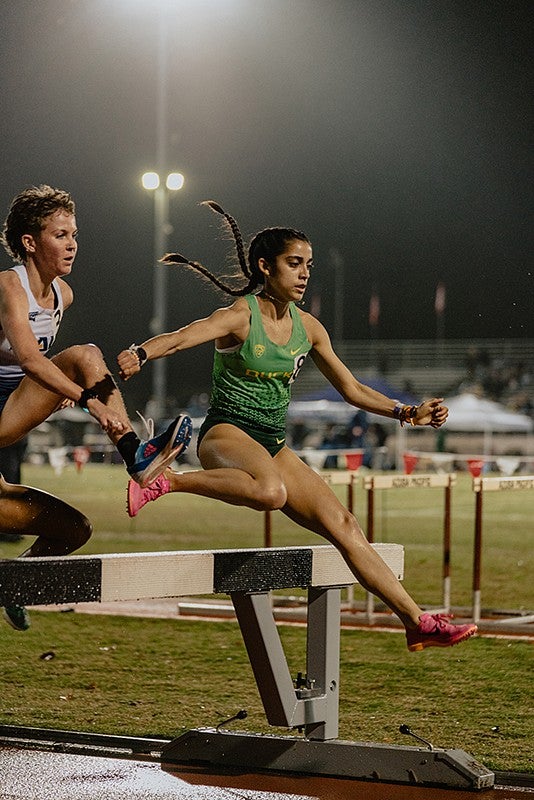
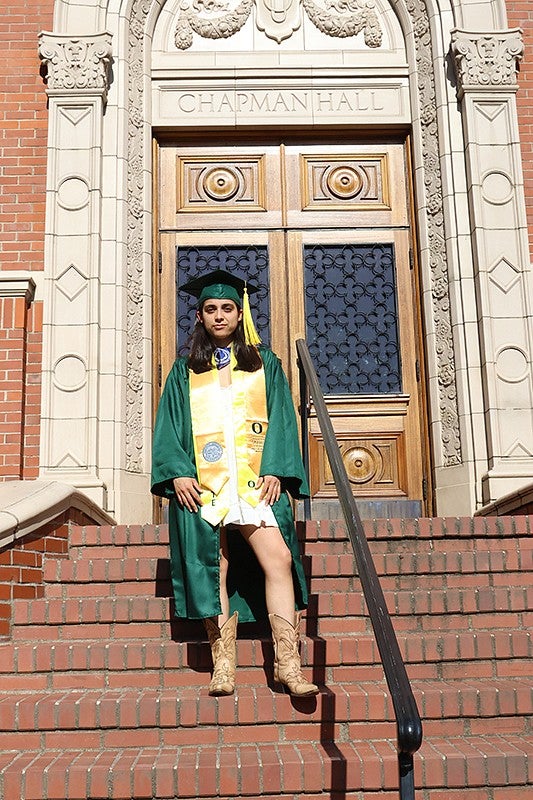
She says she continued her work in the lab and developed her Honors College thesis, amidst a busy academic schedule. Her thesis, titled “An Immunomodulatory, Tissue Deposition Mechanism and Rehabilitative Therapy for Restoring Muscle Functionality After Volumetric Muscle Loss,” tackled the question of how to repair muscle loss after a significant injury.
“How can we regenerate muscle?” McClain asks. “How can we make repairs so people won’t be in pain and rack up huge medical bills? We have to think about the lives of people – whether they are in car wrecks or get injured as part of military duty. I see this research as helping them get back as close as possible to having a normal, healthy life.”
Junior Hannah Seubert was one of McClain’s roommates and a close friend. They were also teammates on the cross country and track teams. “It’s hard to put into words how good a friend Harper is,” Seubert says. “She is dedicated to everything she is doing but after all of it, she still makes her friendships a priority. She is so authentic.”
That’s despite, Seubert says, having a schedule that begins most days at 4:30 a.m. and ends into the late evening hours. “You don’t see that in very many college students,” Seubert says.
Next up for McClain is a master’s in bioengineering at Oregon State University. Because of her earlier injury, she has a year of collegiate eligibility left and plans to run for the Beavers. And she will continue her research, staying in touch with Willett and his lab.
A role model for McClain is U.S. Olympic champion Gabby Thomas, who earned a neurobiology degree, along with a minor in global health and health policy from Harvard University. Thomas, who won the gold medal in the 200-meter run, has a master's in public health and leads a hypertension intervention program in Texas in her spare time.
“It’s pretty amazing to see what she does, but anyone can set their boundaries and go for it,” McClain says. “I’m grateful that I get the chance to continue my running. But I also know I have some other goals I want to reach. Getting my master’s will move me closer. It won’t be easy, but I’m up for the challenge.”

